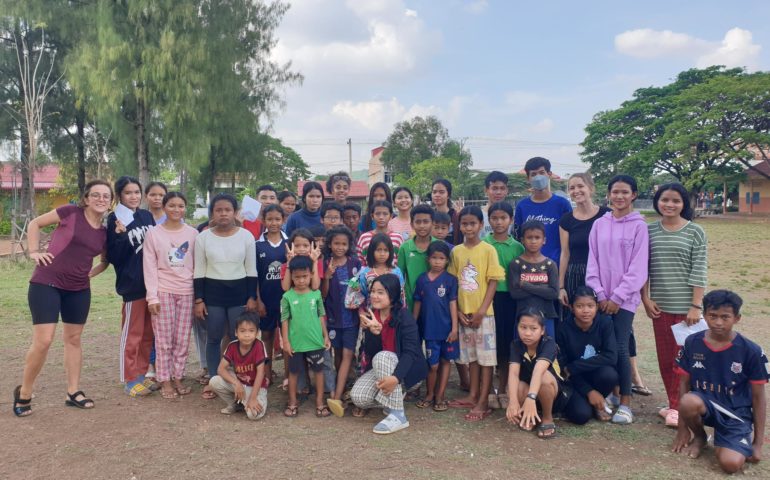
At the Foyer Lataste, we regularly welcome volunteers who get involved in various missions for short periods of time. Since the reopening of the country at the end of 2021, we have been delighted to receive many requests to come and help us on the ground!
However, it’s important to remember that volunteer missions are always done in addition to supporting the local team for the needs of the moment. Indeed, volunteering abroad can do more harm than good if it is not well supervised.
In recent years, we have heard a lot about a growing economy, “Volontourism”. This term is the contraction of “volunteering” and “tourism” and refers to a type of travel that integrates volunteering into a vacation in a developing country, often with the purpose of making the trip more meaningful. Volontourism often involves short-term, unskilled work, such as building houses, giving informal English classes, or helping to look after children in an orphanage.
Indeed, facing the level of poverty that exists in developing countries can be destabilizing. It is common for tourists to feel pressured to “do good” and “give back” while on vacation. However, without understanding the situation as a whole, their good intentions can have harmful consequences for local communities.
In an article for The Guardian, Tina Rosenberg explains how many nations have continued to build and maintain orphanages (despite their proven ineffectiveness compared to foster care systems) simply because there is money to be made from well-meaning tourists who want to volunteer with children.
The desire of foreigners to help children in orphanages encourages the institutionalization of children, creating a profitable business. Children can be placed in deliberately poor living conditions to elicit a more emotional response and increase visitor donations. Unfortunately, these abuses happen more often than you might think and can, in extreme cases, lead to child trafficking.
Then there is also the fact that voluntourism with children has a serious and permanent impact on their psychological and emotional development. The most important thing that children need to grow well is a stable and nurturing attachment, which is not compatible with the short stay durations of volunteers. High adult turnover in children’s lives exacerbates attachment disorders and can cause lifelong emotional trauma.
The majority of volunteer tourists are not qualified for the mission they will carry out, whether it is construction work or caring for orphan children. Activities like these may seem like a great way to help but ultimately weaken local populations and communities. Doing work that could be done by locals has an impact on local economies, taking jobs away from local people who are qualified and who need that work.
This paternalistic way of “helping” neglects local expertise and perpetuates a problematic stereotype that developing communities are inherently powerless and unable to solve their own problems. It also fuels the “white saviour” complex and the incorrect assumption that developing countries desperately need western help.
Thus, the best way to help is not to take over and do things instead, but to use one’s skills, wealth and expertise to support communities to develop the means to build their own future.
At the Foyer Lataste, we are aware of the complex issues related to volunteering. Our programs aim to keep children as much as possible in their family or community, by implementing appropriate support solutions. Only children in immediate danger are welcomed at the Foyer, in an environment adequate to their proper development, and relationships with their families are maintained and encouraged.
The proposed volunteer missions are prepared in advance, they always meet a specific need in the field, and should not replace the work that could be done by someone locally. The fundamental principle of the association is the development of actions carried out by Cambodians, for Cambodians. In the field, more than 40 Cambodians carry out the association’s actions, supported by a French volunteer who takes care of program coordination, financial management and communication.
Written by Coline Cimetière, field coordinator
See more articles : https://aeclataste.org/dernieres-actualites/